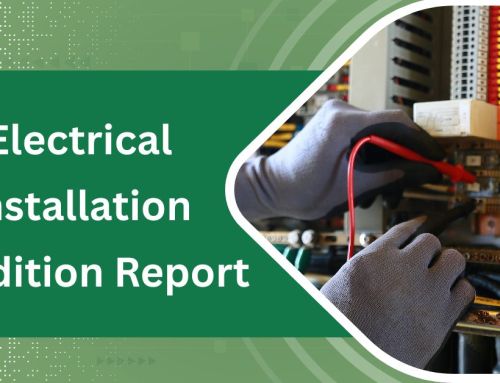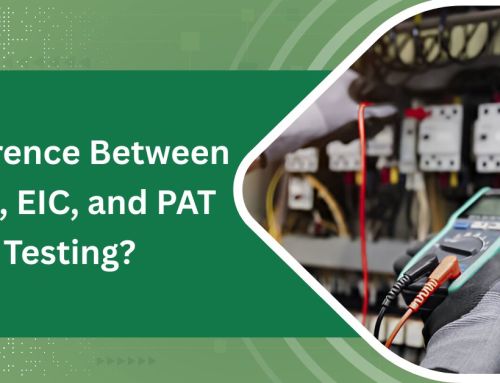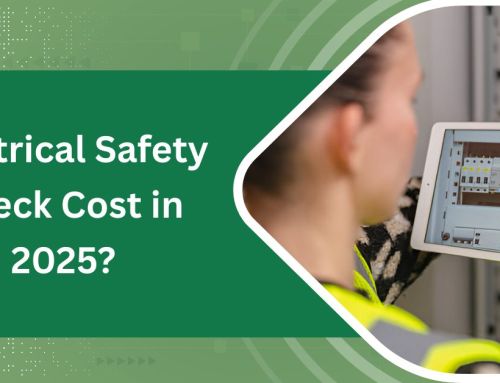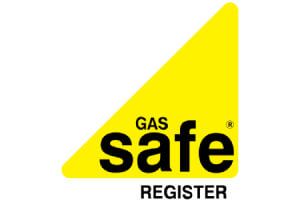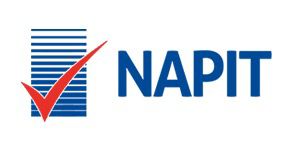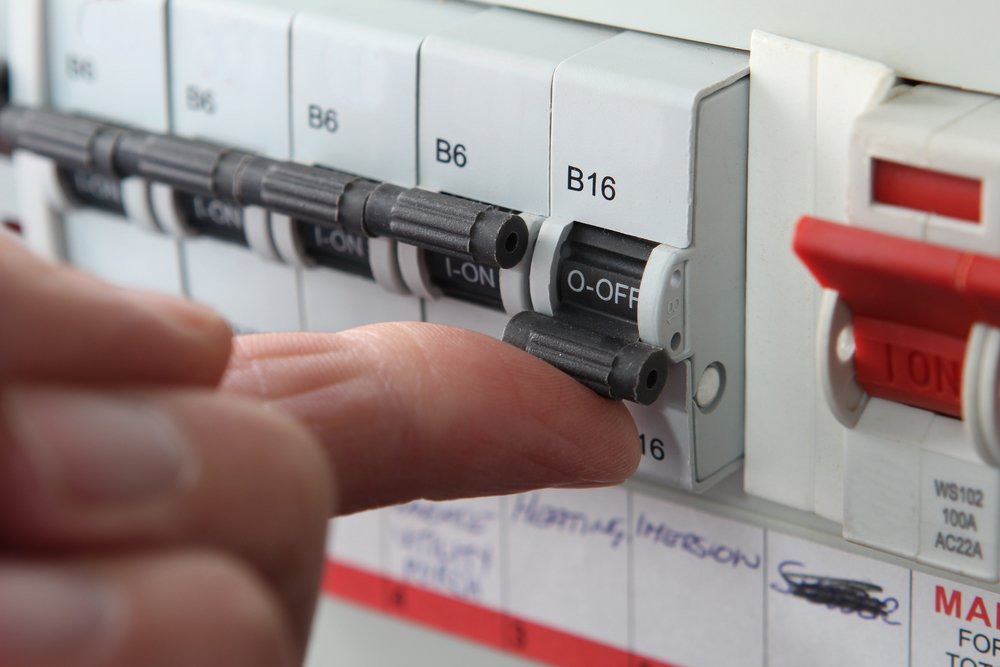
EICR Check – Landlord Certificate London
Under the new law starting April 1, 2021, all rental properties will be legally mandated to possess an up-to-date Electrical Inspection Condition Report (EICR).
The EICR law, part of the Housing Act 2004, is a mandatory requirement in the UK that must be met by landlords. It serves to ensure that rental properties are safe and habitable for tenants.
Under the EICR law, all landlords have an obligation to carry out periodic electrical safety checks on their properties and issue Electrical Installation Condition Reports (EICRs) to tenants. These reports contain detailed information on the condition of the electrical installation, with any faults or discrepancies highlighted for landlords to act on.
The EICR law also sets out specific criteria that must be included in an EICR report. This includes details such as the type and age of the electrical installation, the condition of wiring and associated equipment, and any recommendations for further action.
Landlords must ensure that their properties comply with the EICR law or face hefty fines. It’s therefore essential that they stay up to date on the latest legislation and seek help from qualified professionals to conduct regular electrical safety checks.
By following the EICR law, landlords can ensure that their rental properties are safe and habitable for tenants. This not only helps protect tenant welfare but also proves a landlord’s commitment to providing quality accommodation. As such, it is an important part of responsible property management and should not be overlooked or neglected.
What is an EICR Check?
An Electrical Installation Condition Report (EICR) Check provides a comprehensive overview of the condition of an electrical installation. It assesses whether it is safe to use and meets current standards. An EICR includes a visual inspection, testing of components, and examination of documentation. The report will provide details on any issues found, such as overloading or deterioration of components, and provide recommendations for any necessary repairs or upgrades. It is important to have an EICR performed regularly to ensure the safety of an electrical installation. Any issues identified in an EICR must be addressed promptly in order to maintain the safety of the system. Regular maintenance can also help to prolong the life of an installation, meaning fewer costly repairs down the line. An EICR should be completed by a qualified electrician and can be used to demonstrate compliance with legal requirements. It is an essential step in ensuring that any electrical installation remains safe and efficient.
The results of an EICR Check are provided in a report, which will detail any issues encountered, and should include recommendations for repairs or upgrades. The electrician is also required to note any areas where the installation has been found to be compliant with current standards. It is important to act on the recommendations of an EICR as soon as possible in order to ensure the safety of the installation. An EICR must be completed at least every five years, or more frequently if requested by a landlord or insurance company.
Who Can Perform an EICR Check?
An EICR Check, or Electrical Installation Condition Report, is a document that verifies the condition and safety of an electrical installation. It is issued by a qualified electrician following inspection and testing of the electrical system. The EICR Check report includes details such as the age of wiring, any potential hazards, and recommendations for repairs or replacements. In the UK, EICR Checks are required by law whenever an electrical installation is altered or changed. They must also be issued after any period of time in which no EICR Check has been produced for a property – typically this is every 5 years. EICR Checks are an essential part of ensuring the safety of all occupants and visitors to a property and must be taken seriously. It is important to ensure EICR Checks are carried out by a qualified electrician in order to guarantee the accuracy of the results.
Who is a qualified electrician?
Generally, the electrician will have completed a course on routine assessment and testing, be registered with either the Joint Industry Board (JIB) or NICEIC scheme provider, plus possess an advanced familiarity and expertise in electrical systems.
Qualified electricians are highly trained professionals who have extensive knowledge of electrical codes and regulations, as well as the skills required to safely install, maintain and repair various types of electrical equipment. They must also possess problem-solving and analytical skills in order to diagnose and fix electrical issues. Qualified electricians are essential for any construction or renovation projects involving electricity, as they ensure that all electrical systems meet safety standards and operate correctly. By using a qualified electrician, you can have peace of mind knowing that your home or business is safe from electrical hazards.
EICR- The Current Governing Law in UK!
By April 1, 2021, landlords in England must provide a valid EICR to their tenants within 28 days of inspection. Neglecting to follow this guideline could result in penalties up to £30,000! The Housing Act 2004 mandates that the local authority where the building is situated enforce these new regulations.
Since April 2020, it is mandatory to present an Electrical Installation Condition Report if you are entering a new tenancy; starting in April 2021 the same rule will apply for all tenancies – regardless of whether they’re old or new.
What happens during an EICR Check?
With an EICR Check, you can rest assured that your property is in perfect condition – from measuring the power flow and adhering to safety regulations, to gauging electricity usage levels and determining when maintenance needs should be addressed. This comprehensive audit of all electrical wiring and components not only ensures reliability but also provides peace-of-mind knowing that your environment meets key safety criteria for optimal performance.
To ensure the safety of your premises, a certified electrician will exhaustively investigate all wiring systems and its components such as switches, sockets, fuses and junction boxes by utilizing innovative testing tools. This detailed process allows them to detect any irregularities in the electrical system with accuracy.
To guarantee optimal protection from electrical shocks, the electrician will make sure all parts are correctly earthed, bonded and properly linked to the system. To maximize safety and effectiveness, they’ll evaluate how much electricity is being consumed and determine when maintenance needs to be executed. Lastly, once concluding this examination, a complete report of their discoveries which includes any necessary repairs or replacements recommended will then be provided by them.
EICR Check: The Six Step Rule
-
Visual Inspection
To ensure safety and security, Visual Inspection is an eicr check procedure is conducted by qualified electricians. This entails inspecting the wiring structures and parts of any electrical installation to detect potential hazards such as worn or loose wires, aged components, overloaded equipment or insufficient earthing. By performing this precautionary measure you can be certain that your home’s electricity runs safely with no risk of damage coming to its occupants.
When the electrician inspects your wiring, they will assess it for any indicators of burning, arcing or corrosion; these are potential signs of a fault in the system. If such an issue is detected during the inspection process, it then becomes mandatory for them to advise you on what needs to be done in order to ensure that everything is running safely and securely.
-
Dead Test
With dead tests, electricians can inspect the electrical continuity and insulation between two points. To conduct this test successfully, technicians must first isolate any live parts or earthed components of the circuit being examined to make it ‘dead’. Once that has been achieved, a low voltage is applied between specified points in order to assess the insulation resistance and check for proper functioning. Safety is paramount when implementing these eicr testing procedures which calls for using dedicated instruments specifically designed with verification purposes in mind.
In order to maintain the health and security of people and equipment, dead tests have been established as part of EICR Check procedures. These tests prove effective in verifying the current flow or insulation resistance between two points.
-
Live Test
The next phase of the EICR testing process is referred to as Live Testing. While the electrical system remains connected to its power source, a variety of tests are carried out – these include voltage and prospective short circuit current checks, together with an earth loop impedance test. All circuits are thoroughly tested for any irregular readings that could signal a problem in your electric system.
The engineer’s inspection of the installation is integral to ensuring that it remains safe, efficient and compliant with regulations. To guarantee this, they will check for any electric shock risk and make sure all circuits have appropriate protection in place. After a thorough examination of every step taken throughout the EICR Test Procedure, they will provide a full report on their findings to ensure total compliance with regulations.
The EICR Test Procedure is essential to guarantee the safety, effectiveness and regulatory compliance of an electrical installation. If any issues are identified during testing, swift action must be taken to rectify them. By adhering precisely to each step of this testing process, you can rest assured that your electrical system will meet all industry standards.
-
RCD Test
RCDs (residual current devices) are vital to electrical safety and EICR Checks. In the event of an electric shock, they quickly shut off power before it reaches you. To ensure RCDs are working properly, we must regularly measure their sensitivity to detect small currents in order to guarantee optimal protection. This test is essential for upholding a safe environment for everyone!
-
Earthing & Bonding Test
The earthing and bonding test is a key component of any electrical instalment. This assessment guarantees that the earth system is accurately hooked up and performing properly, decreasing danger of electric shocks or fires. To execute this examination, an accredited specialist will utilize specific equipment to measure the resistance, current carrying capacity and continuity of your connections. If there are any issues with your installation’s grounding system, these can be spotted so effective corrective action can be taken for heightened safety.
-
Switches, Sockets and Fuses test
In order to guarantee electrical systems are secure, switches, sockets and fuses must be tested regularly. EICR checks these devices for any deterioration or faults that could potentially lead to an electric shock or cause a fire hazard. As per the electrical safety regulations all switches, sockets and fuses should be evaluated on a regular basis.
A comprehensive EICR test scrutinizes switches, fused switches and socket-outlets for their functionality and integrity. Each switch must be examined to ensure that it operates correctly, while all socket outlets must be inspected and tightened for any signs of damage or corrosion. On top of this, the fuse ratings have to be checked to guarantee they meet current regulations.
What Happens If an EICR Check fails?
This EICR Check thoroughly outlines any regulations or standards not met, thus allowing for easy identification of errors. It even goes as far to pinpoint exact error codes such as C1, C2, C3 and F1 related to each failed element.
An EICR C1 error code is an imminent danger and must be handled instantly. A C2 code signals that swift action should be taken within 28 days from the initial test to avert harm or destruction. In contrast, a C3 Error Code indicates a need for upgrades; however, it does not revoke the certificate – rather if left unresolved then only between 1-5 years will be granted as opposed to 5 years of clearance.
The F1 assessment should be conducted with utmost scrutiny, as it identifies potential issues such as an overburdened electrical system that must be correctly addressed before any other solutions can be contemplated.
Should your EICR Check indicate any issues, it is essential that you take swift corrective action to address any potential safety risks. Engaging a certified electrician will ensure that all of the problems identified by this evaluation are accurately diagnosed and rectified.
Timely action must be taken and an updated EICR certificate issued as soon as any remedial works have been done properly. The results of neglecting to take corrective steps can range from bodily injury to tragic fatality, making it essential that all issues highlighted in a failed inspection are resolved promptly and accurately. In the end, it is the responsibility of the property owner or landlord to guarantee electrical safety at all times.
What happens once your property passes an EICR Check?
After being presented with a satisfactory or pass EICR certificate, it is of the utmost importance to share this document among all relevant individuals. This consists of any owners/landlords/tenants living in the building as well as any local agencies that may have requested for a copy after completion of the report. Securing your Electrical Installation Condition Report (EICR) certificate and keeping it safe is essential should you need to refer back to it at some stage in future.
Keeping up with regular Electrical Installation Condition Reports (EICRs) is essential for safeguarding everyone from the potential of electrical fires and other hazards. To further maximize your safety, it’s a wise decision to consistently go over these reports; by doing so you can take immediate corrective action if needed, thus ensuring security for all.
Why have an EICR Check?
An EICR Check is an essential and practical way to prove the safety of your electrical installation. Requesting a EICR Check might be necessary in various circumstances, such as renting out accommodation, where it’s the most efficient way to show that all electrical components are up-to-code without spending lengthy amounts of time doing so. Other reasons why you may require an EICR Check include:
Knowing when to obtain an EICR Check is determined by various factors such as the age of the installation, type of property and environmental conditions. For instance, if you have a swimming pool in your home then it’s recommended that electrical inspections are carried out yearly for those parts related to it. Moreover, older installations require more frequent assessments than newer ones due to potential defects or damage which could be hazardous. To ensure safety at all times, these aspects must always come into consideration before any decision-making processes take place regarding an EICR Check.
An EICR Check is highly recommended when the domestic premises undergo a change in use, such as occupancy changes for rental properties, preparing it to be sold or being purchased. By carrying out an EICR Check with each change of occupancy in rentals, sudden electrical incidents due to vandalism can be averted and potential issues identified before they become costly problems. Similarly, requesting an EICR Check prior to purchasing a property may also reveal any necessary updates needed on the electrics within it.
If the householder is worried about any issues with their electrical system, they should make sure to get it checked out through an EICR Check.
The Electrical Installation Condition Report (EICR) check is an essential part of a landlord’s legal duty to ensure that their rental property is safe for tenants. As such, it is vital that each EICR check is carried out in accordance with industry standards and that they are regularly updated. An EICR check will offer peace of mind that the electrical installation in a property is safe and up to date, preventing any risk of injury or death due to an unsafe electrical system. It is essential that landlords take the necessary steps to ensure their properties are compliant with regulations and that they carry out regular EICR checks on all electrical installations. Failure to do so could result in prosecution for failing to comply with regulations. By carrying out an EICR check, landlords can ensure their tenancy agreements are legally valid and that they are providing a safe environment for their tenants. Regular EICR checks will also protect the landlord from any potential legal action due to negligence of electrical safety in the property.
Landlords should always prioritize EICR check in order to ensure that their legal requirements are met. If a tenant requests an EICR Check, or if the landlord or agent suspects potential electrical defects, then it must be conducted immediately. Staying up to date on these tests will help landlords fulfil their duty and keep tenants safe from any dangerous wiring issues.
In conclusion, it is clear that EICR checks are an essential part of a landlord’s legal duty and should be carried out regularly. Not only do they provide peace of mind for landlords and tenants, but they also protect both parties from potential legal action. It is therefore highly recommended that all landlords ensure their properties have up to date EICR checks in place.
Looking for an EICR Check for your property?
At Landlord Certificate London, we understand how important it is to ensure your property and equipment are safe. That’s why we offer the highest quality EICR check services. Our experienced and certified electricians will assess your property, including all circuits and systems, for any irregularities or potential dangers. With our detailed reports, you can be sure that your property is in the best possible condition and avoid any potential safety hazards. So, if you’re looking for a reliable and trustworthy EICR check, look no further than Landlord Certificate London. We are dedicated to ensuring your property remains safe and secure. Let us take care of all your electrical needs today!
Our Pricing
| Our Electrical Safety Certificate Prices |
|---|
| Studio Apartment £67.99 |
| 1 – 3 Bedroom £81.99 |
| 4 Bedroom £89.99 |
| 5 Bedroom £98.99 |
Check Out Our Other Services
| EICR | Commercial EICR | Emergency Light Certificate |
|---|---|---|
| Electrical Diagnostic | PAT Testing | Fuse Box Installation |
About the Author: LandlordCertificate
Related Posts
Get Social
Recent Posts
- Understanding Fire Extinguisher Testing: What It Involves
- Gas Safety Certificate Requirements: What Every UK Property Owner Must Know
- What Is the Fire Risk Assessment Cost
- Gas Safety Certificate in London: What It Is and Why You Must Have One
- Why Getting an Asbestos Survey Matters for Property Safety


